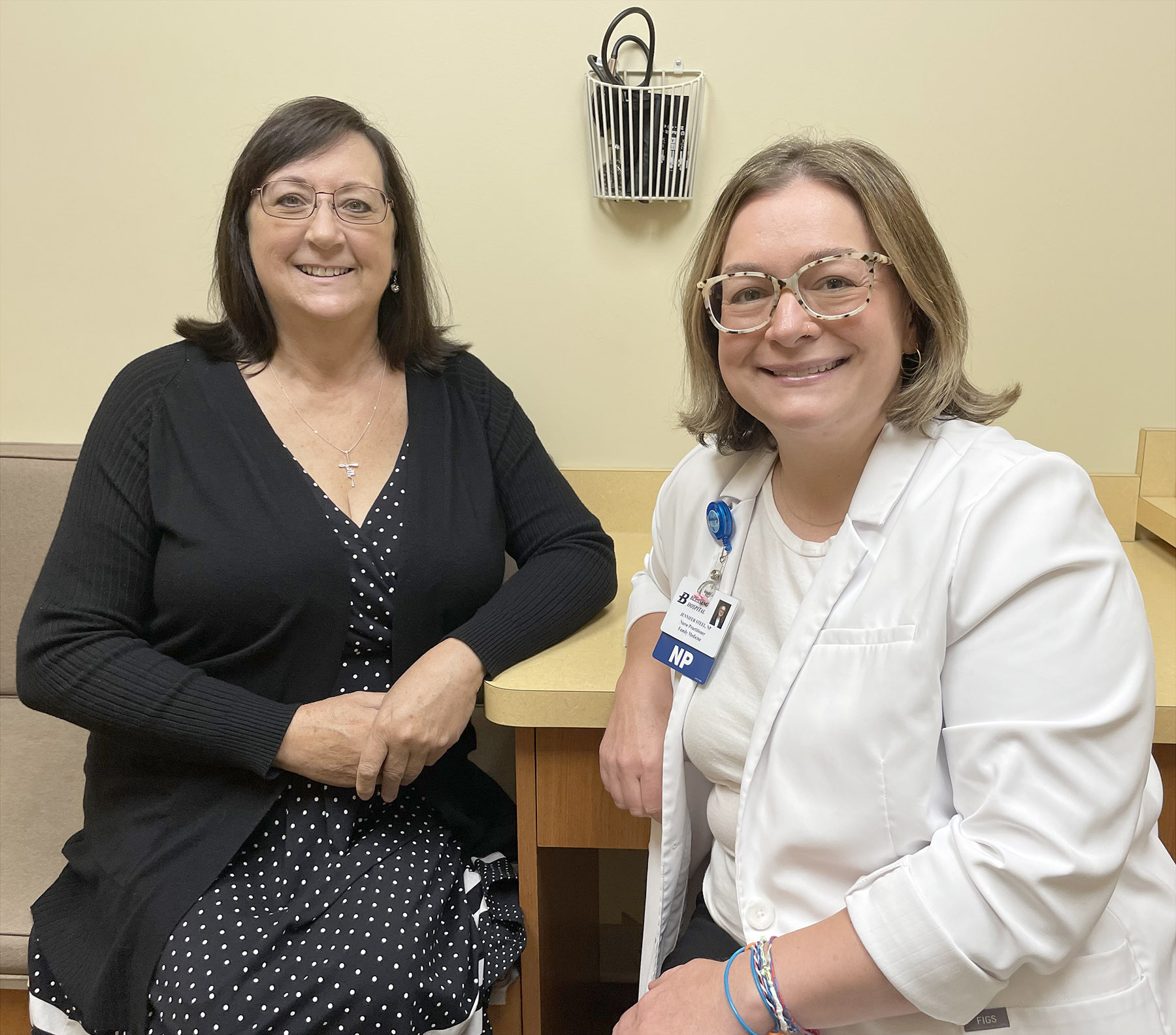Maria Baker faced a challenge becoming more common these days nationwide. She lost her primary care doctor when he ended his practice unexpectedly.
unexpectedly.
“I had been a patient of his close to 20 years,” Maria said.
While her doctor was not a Blessing physician, she decided her next primary care provider would be, because now Maria was working for Blessing as a secretary in Outpatient Administration.
“I asked around and was told by several people to try Jenny Steel and that I would love her. I was not disappointed.”
Jenny Steel is a nurse practitioner (NP).
As doctor shortage grows, NP demand rises
The Association of American Medical Colleges projects a shortage of as many as 124,000 physicians by 2034, more than a third of them primary care providers.
At the same time, the Bureau of Labor Statistics' most recent report on the 20 fastest-growing occupations in the nation shows nurse practitioner comes in at a tie for number one. Employment of nurse practitioners is projected to grow 38% from 2022 to 2032, much faster than the average for all occupations.
At Blessing Health, nurse practitioners make up approximately one-third of the system’s providers. Twenty-one of those NPs are in primary care.
Meet Jenny Steel, FNP
Jenny was raised in Quincy and is a former 7th grade teacher. After several years in the classroom she found herself longing to be in an examination room. So, Jenny went to nursing school.
As a registered nurse at Blessing, Jenny spent five years in critical care and seven years in family medicine, where a provider she worked with encouraged Jenny to continue her education and earn her nurse practitioner degree and certification.
“I felt I could do more, and I knew there was a need.”
Jenny has the utmost respect for physicians, their educations and their contributions to medicine. She has worked with and for numerous physicians over the past 15 years, all of whom have helped shape her into the nurse that she is today. Jenny understands that some people would rather see a physician than a nurse practitioner, but she also knows the growing need in primary care that NPs are helping to meet.
“People need a provider with whom they can see eye-to-eye, regardless of the provider’s title,” she said. “If you want to see a doctor for your primary care, you should be able to see one. If you want to see an NP, you should be able to see one.”
“Nursing is a lot of listening and asking open-ended questions,” Jenny continued. “So, I ask things in a different way, or I think of things in a different way than maybe a physician would,” Not that one’s better than the other. It’s just different perspectives.”
“She spent almost an hour with me, asking many questions to get to know me, listened to any questions and concerns that I had, and was extremely attentive and interested in my health,” Maria said of her first appointment with Jenny.
Jenny says for the most part patients should notice little difference between the quality of care received from a primary care doctor and a primary care NP.
“As long as you know your limitations and when to ask for help, you can take good, safe care of people no matter the initials behind your name,” she said.
What about an NPs education?
NPs have completed four years of classroom and clinical experience to earn their bachelor of science in nursing degree and must pass the national test to become a licensed registered nurse before they can apply to a master’s degree program to become an NP. Many, like Jenny, also have years of bedside nurse experience before continuing their education. Jenny was a bedside nurse for a decade before becoming an NP.
“I don’t think people realize we have put in a lot of hours of education and clinical training. I am proud of my education,” she said.
And just as doctor’s do, Jenny says as an NP she is constantly learning.
“I try to be a sponge - to learn from other NPs, doctors and books. I learn as much as I can.”
Satisfaction all around
After 20 years as the patient of a primary care MD, Maria is pleased with the care she receives now from her NP, Jenny Steel.
“I will definitely recommend Jenny to anyone who might be looking for a new provider,” Maria said.
And Jenny enjoys what she is able to do for primary care patients.
“It’s a wonderful job and it’s super rewarding. I go home every day loving my job,” she concluded.
